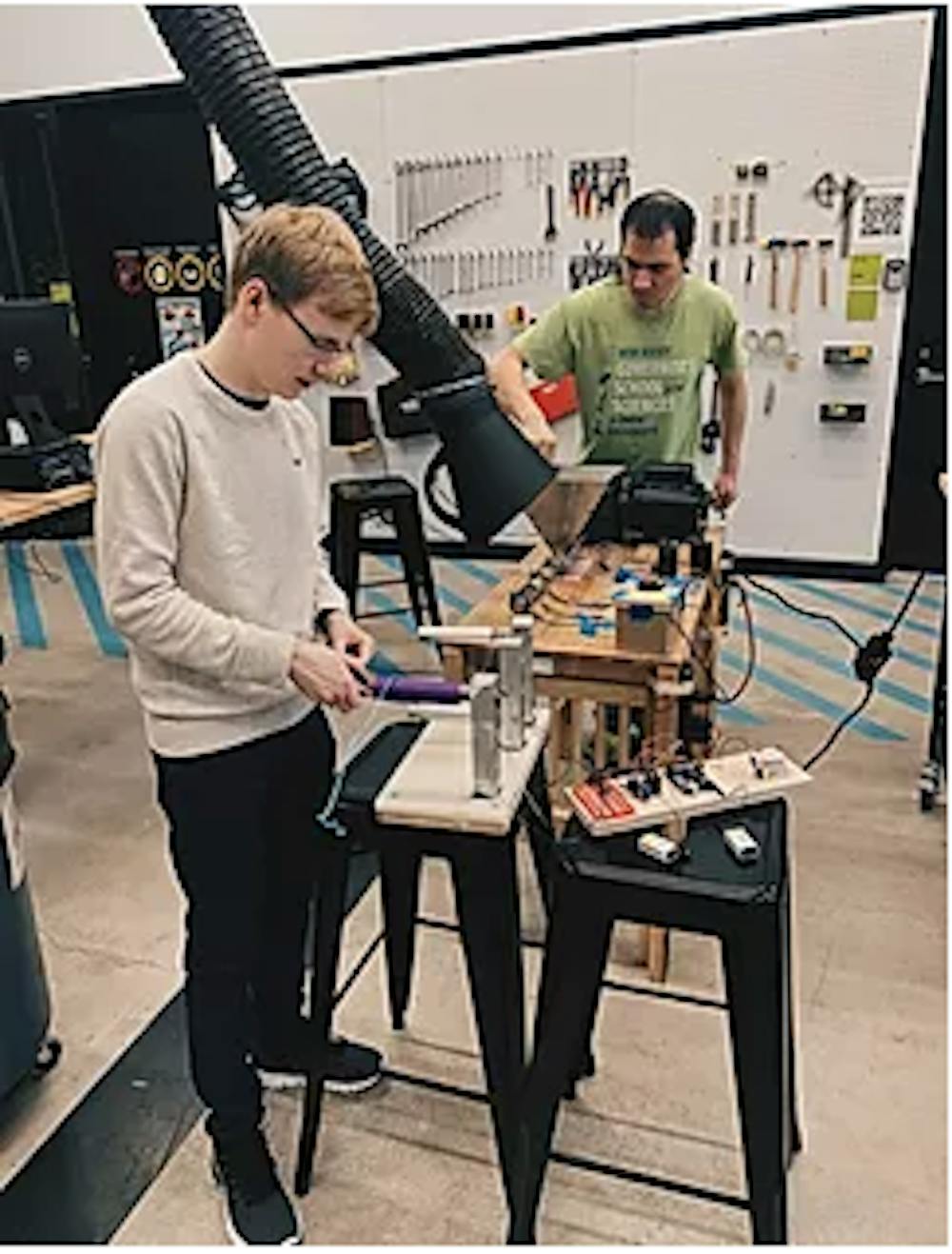Most college students instantly recognize a Solo cup. Its distinctive bright red color can be seen scattered among party-goers in late-night raves. Yet this color masks a darker reality.
According to the Urbana News-Gazette, the Solo Cup Company produces 7.4 billion cups, lids and containers every year — almost none of which is recyclable. With its Solo cup-derived clothing, student group The New Norm aims to change that.
“Red Solo cups are super easy to process. You don’t need any additives or fillers or chemicals,” Lauren Choi said in an interview with The News-Letter.
Lauren Choi, a senior majoring in Materials Science and Engineering and the leader of The New Norm, explained that the team turns Solo cups into clothing fabric.
The collection of cups is donation-based; organizations can place used cups in various drop-off points. The cups are processed into chips using a wood chipper. Then the chips are fed into a machine that the team created.
“The machine churns and heats the chips with a specific polymer processor. The mixture turns into a melt, and then we spool it out of the machine onto the looms,” Choi said
According to Choi, the project began when her mom sent her an article in the Los Angeles Times about China banning imported U.S. recyclables in 2019.
“Our landfills started backing up because we didn’t have someone to take those recyclables. The U.S. doesn’t have the infrastructure to recycle — we just don’t have many recycling facilities,” Choi noted. “I think the shock of that is what made me feel a very large sense of urgency that, oh my god, we’re going through a waste crisis.”
The team came together in January of 2019 — “24 people, right off the bat” according to Choi. Progress was relatively slow at first.
“We took a welding class and I was applying to grants, but we didn’t really build anything that semester,” Choi said.
Despite the team’s lack of progress, nearly all its members were compelled by the vision.
“Environmental issues are so relevant to my generation and to coming generations. So companies potentially buying our fabric to make their clothes will help decrease the pollution to our planet,” sophomore Danielle Bejar, one of the earliest team members, said in an interview with The News-Letter.
After a summer filled with trials and tribulations — Choi described how she hammered together metal chopsticks to connect the machine’s rotor to a rotating screw — the team reconvened at the start of the fall semester and decided to try with red Solo cups. To their surprise, the machine worked exactly as planned.
They started producing filament in October. Then in December, Choi signed up for a weaving class.
“Since after finals in December we’ve been cranking out filament. Now we’re weaving clothes out of our fabric,” Choi said. “We have three weaving projects going. We’re working with a MICA student who works on the TC-2, which is a really advanced loom that you can program to do graphic designs. The loom will weave the graphic designs onto the fabric.”
According to Choi, in today’s world of fast fashion, defining trends using such graphic designs is critical to occupying a niche in the industry.
Teammate engagement has been critical to The New Norm’s success thus far. According to Bejar, the team is divided into smaller subgroups that each handle various projects. Freshman Tina de Jong also echoed the tight organization within each group.
“The team uses weekly contracts specifying work on its projects for the week,” de Jong said. “While some weeks may be harder for teams than others, it ensures that every member of the team is contributing.”
Beyond efficient team organization and Solo cup clothing, The New Norm distinguishes itself from its competitors through domestic clothing production. According to Choi, such production substantially reduces transport-associated carbon output and is central to The New Norm’s ethos.
“If you look at a lot of recycling initiatives, you’ll realize that the waste ends up in [somewhere] like Taiwan,” Choi said. “It’s great that they’re recycling, but the carbon footprint to ship recyclables to them, and then shipping the products back, it’s really too much... A lot of companies are in this space, but not many are doing so in the U.S.”
With Choi electing to stay leader of the team for a year after graduation, the team is primed to ramp up fabric production and enter larger markets, with an eye towards expanding the product line in the future. Environmentally conscious, disruptive and affordable: That’s the goal for The New Norm.





